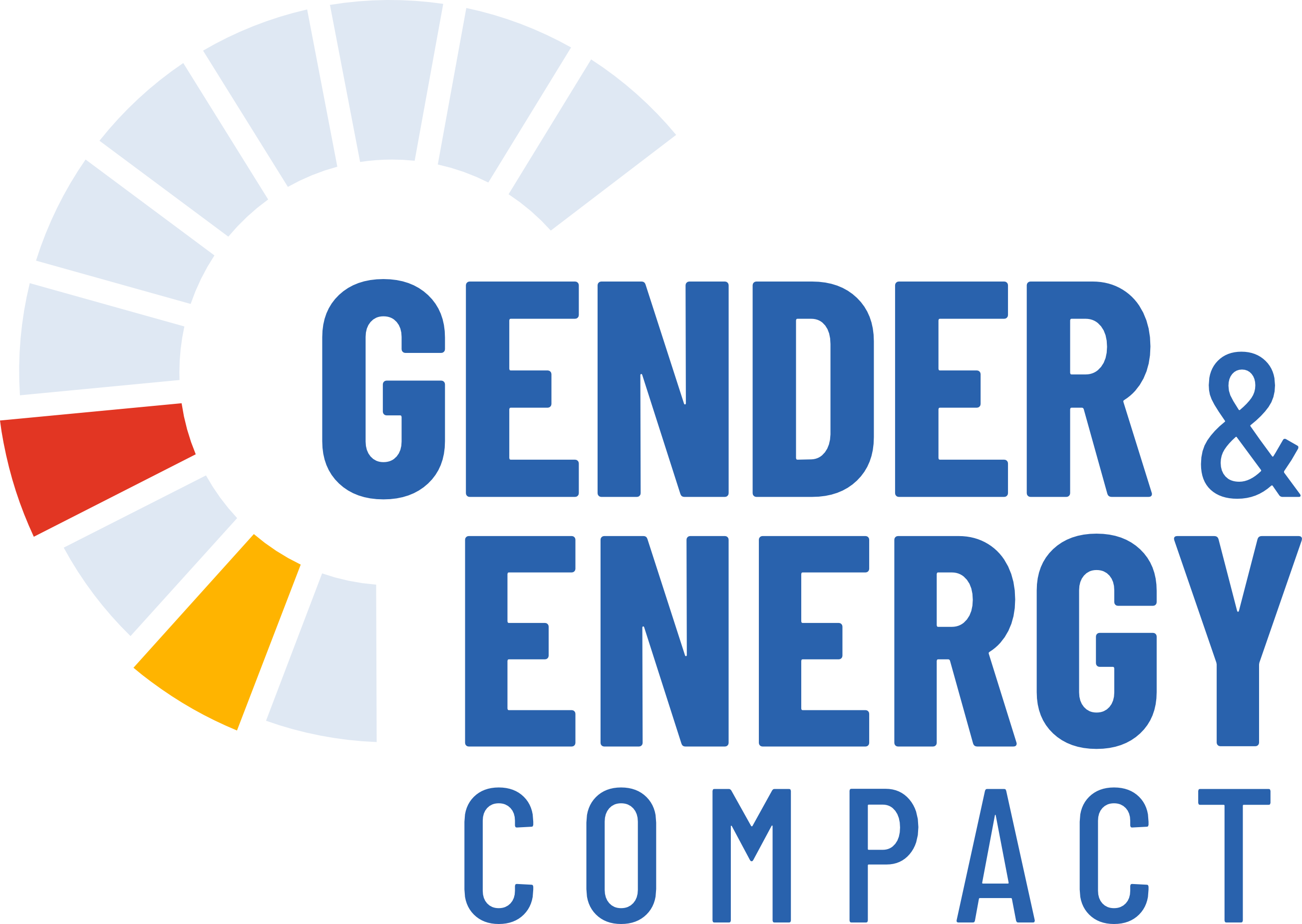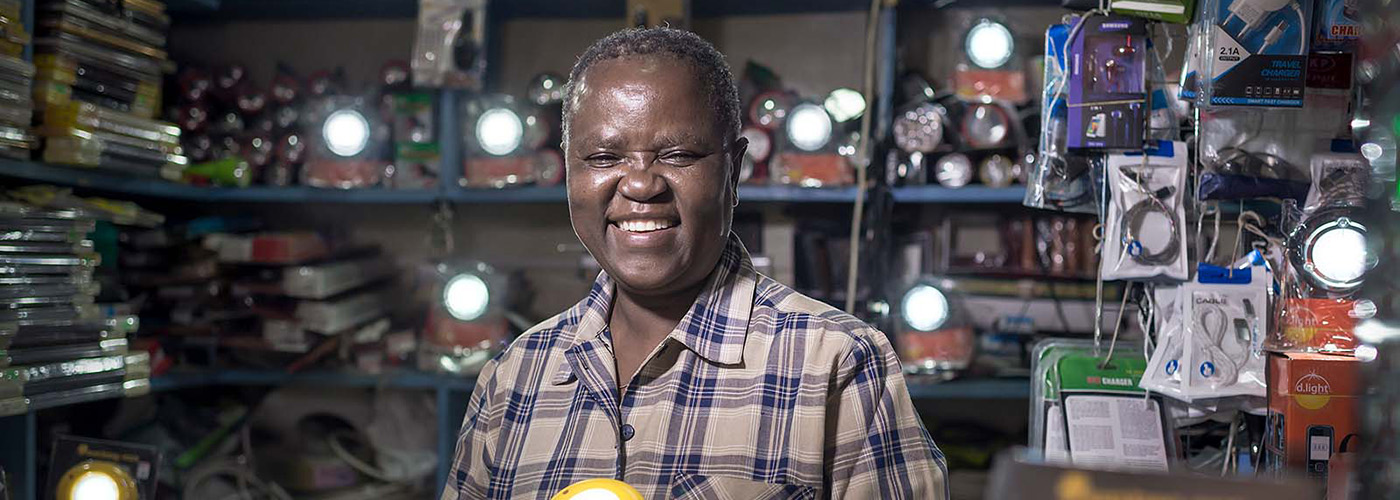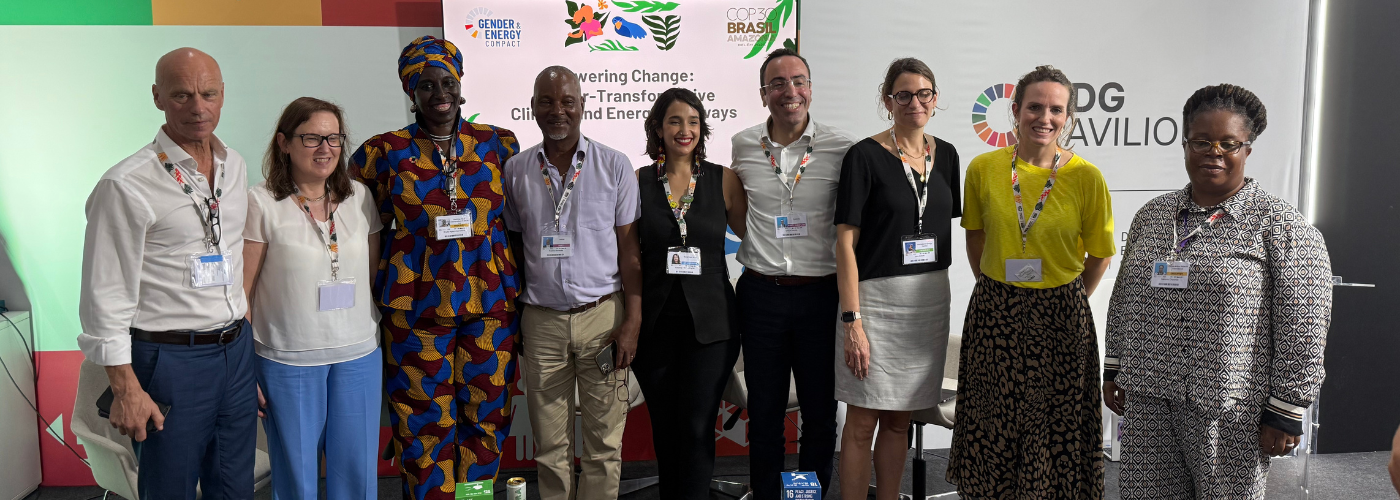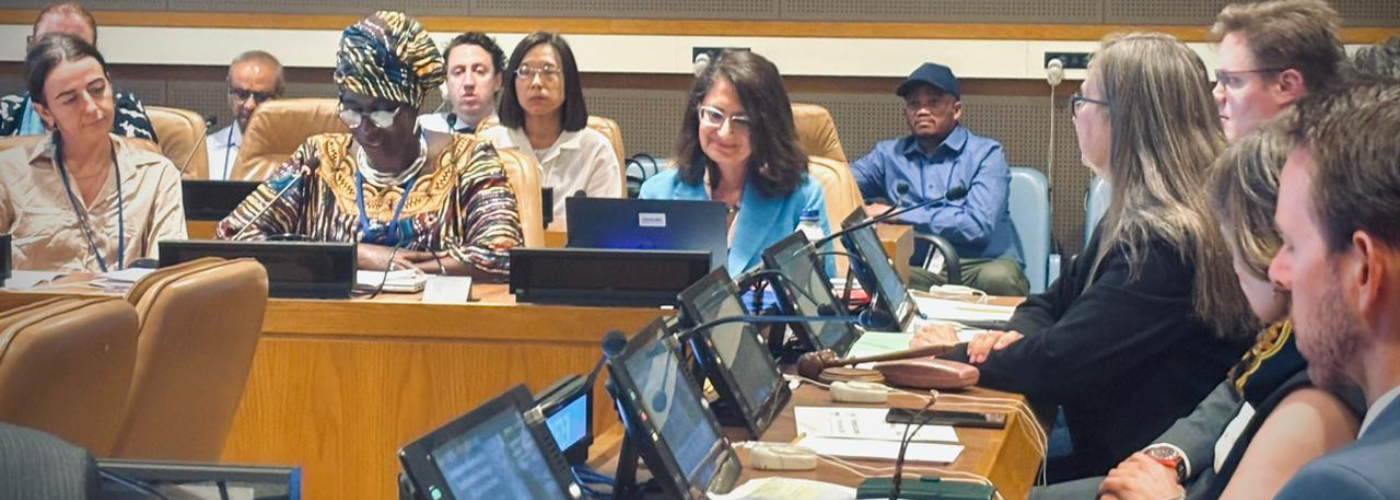There is no time to address the crises our planet and our people are facing. Yet, actions to tackle the climate crisis are still not enough. Solutions are inadequate and insufficient to bring about systemic change that can have a positive impact on everyone. The changes we have witnessed do not tell a different story, but on the contrary they consolidate the already existing gaps. Women, youth and marginalised communities bear the brunt of this inaction and have no space or voice to participate in and benefit from a just and equal transition.
We need a space to discuss gaps and inequalities and to propose critical solutions to advance a gender-just energy transition.
ENERGIA, UNIDO and GWNET, together with strategic partners and members of the Gender and Energy Compact, will discuss the important role of women and of gender-transformative policies in building a climate-just energy future at the 27th United Nations Climate Change conference (COP27) to be held from 6 to 18 November 2022 in Sharm El Sheikh, Egypt. The lead organisations will examine the interlinkages between gender equality (SDG5) and universal energy access (SDG7) with other SDGs, including climate action (SDG13), health (SDG3), food security (SDG2), and clean water and sanitation (SDG6), and a key issues that hinders the full participation of women and youth in the climate and energy transition, namely financing mechanisms.
We need action at all levels
Sustainable energy plays an important role for climate change mitigation. However, it can also play a key role in adaptation, in reducing climate vulnerability of women and therefore fostering gender equality and women’s empowerment for a just transition. Decentralized renewable energy and clean technologies can not only create income opportunities for women and enhance their adaptability, but give multiple options to adapt to climate change and thereby reduce vulnerability of women.
The gender dimensions of the water-energy-food nexus will be discussed during the event “The role of gender equality for a just, sustainable and climate resilient energy transition” organised by UNIDO jointly with FAO, WFP, UN Women. The session will feature women leaders and representatives from programs and initiatives such as the Gender and Energy Compact that foster a gender-transformative approach in climate action. This event will explore the nexus dimensions of gender equality, climate change mitigation and adaptation, food, and agriculture and discuss why we need to include women at all levels: as sustainable farmers, as entrepreneurs, as policy makers, and as global and equal partners for climate action.
Date and Time: 18:30 – 20:00 UTC+2 November 12th, 2022
Location: Room Amon in the blue zone of the Sharm El-Sheikh International Convention Center
Links for virtual participation of audience: https://unfccc.int/process-and-meetings/conferences/side-events-and-exhibits; All side events will be live-streamed on the COP 27 platform for virtual participation (can be accessed by registered conference participants only), the official UNFCCC website, and YouTube channel (https://www.youtube.com/c/unfcccint).
The event is expected to last for one hour with the planned format as follows:
Welcome remarks: H.E. Dr. Yasmine Fouad, Minister of Environment, CoP 27 Ministerial Coordinator and Envoy, Ministry of Environment, Egypt and H.E. H.R. Dr. Rania A. Al-Mashat, Minister of International Cooperation, Egypt, MOIC
Opening Remarks: Enith Carrion, Vice Minister of Electricity and Renewable Energies, Ecuador
Setting the scene: Elizabeth Wathuti, Environmentalist, Climate Activist, Founder, Green Generation Initiative, Wangari Maathai Scholarship Awardee
Panel discussion:
- Elizabeth Nyamayaro, Special Advisor to WFP
- Stella Funsani Gama, Director of Forestry, Ministry of Natural Resources, and Climate Change, Malawi; and representative of LDC Group
- Kosar Bano, Gender and Adaptation Specialist, International Centre for Integrated Mountain Development (ICIMOD)
- Joy Reyes, Climate justice lawyer, Manila Observatory
- Brandi di Carli, Founding Partner, Farm from a Box
- Jillene Connors Belopolsky, Chief of Staff, Clean Cooking Alliance
- Gareth Phillips, Climate finance Division Manager, African Development Bank (AfDB)
Q&A
Closing remarks: Tareq Emtairah, Director, Department of Energy and Decarbonizaton, UNIDO
Moderator: Inkar Kadyrzhanova, Senior Natural Resources Officer, Office of Climate Change, Biodiversity and Environment, FAO
Where is the money for a gender-just energy transition?
Inequalities demand urgent, bold responses, and can only be successful if accompanied by adequate financial resources. Women and girls are particularly vulnerable to climate change and suffer from energy poverty, but they are also key agents of change with the capacity of bringing in innovative, bold solutions for climate action. Gender equality and women’s empowerment need to be supported at all levels: women entrepreneurs, women’s access to energy at the last mile, women in the workforce, as well as gender responsive energy/climate policies and gender-balance in decision making processes.
Despite the wide recognition that supporting gender equality contributes to sustainable energy for all and vice versa, gender-smart climate finance for a just, inclusive and sustainable energy transition lacks behind. This was a major finding in Energizing Finance: Understanding the Landscape 2020, produced by Sustainable Energy for All (SEforALL) and the Climate Policy Initiative (CPI), that found that financing for energy projects with a specific gender equality objective remains a small share (2-11 percent) of total official development assistance (ODA) to the energy sector. Finance for energy projects with a gender equality objective is also highly concentrated amongst a few donors — 93 percent of total finance reported is from only 10 government agencies. Key reason for this is financial mechanisms tend to be gender-blind, and fail to include the needs and rights of the majority of poor and excluded women living on the frontlines of climate change and energy poverty, with unmet development needs and the burdens of whole communities on their backs.
This session will discuss critical questions, such as how can money reach women in last mile communities? Where is the money for gender-equality and women’s rights? What kind of interventions and innovations is the Energy Action Compact Network, which has mobilized USD 600 billion to enable action on SDG7, supporting?
Date and Time: 10:30 – 11:30 UTC+2 November 14th, 2022
Location: SDG7 Pavilion in the blue zone of the Sharm El-Sheikh International Convention Center
Link (for virtual participation): https://webapp.spotme.com/login/eventspace/SEforALLCOP27
The event is expected to last for one hour with the planned format as follows:
Setting the scene: Norah Magero, Co-founder and CEO, DROP ACCESS
Opening Panel with government representatives:
- Enith Carrion, Vice Minister of Electricity and Renewable Energies, Ecuador
- Elin R. Sigurdardóttir, Director General for International Development Cooperation, Iceland
- Faith Wandera-Odongo, Senior Deputy Director of Renewable Energy, Ministry of Energy, Kenya (tbc)
- Hans Olav Ibrekk, Special Envoy, Climate and Security, Section for Energy, Climate and Food Security, Norwegian Ministry of Foreign Affairs
Technical Panel with experts:
- Everjoice Win, Executive Director, Shine Campaign – Gender responsive investing in clean energy
- Olasimbo Sojinrin, COO, Solar Sister
- Gareth Phillips, Climate finance Division Manager, African Development Bank (AfDB)
- Dabira Abiola-Awe, Ventures and Capital Campaign Associate, Student Energy
- Ellen Brookes, Climate Change Executive, British International Investment
Closing remarks: Irene Giner-Reichl, Founding Member and Senior Advisor, Global Women’s Network for the Energy Transition (GWNET)
Moderator: Rana Ghoneim, Chief, Department of Energy Systems and Industrial Decarbonization Unit, UNIDO










